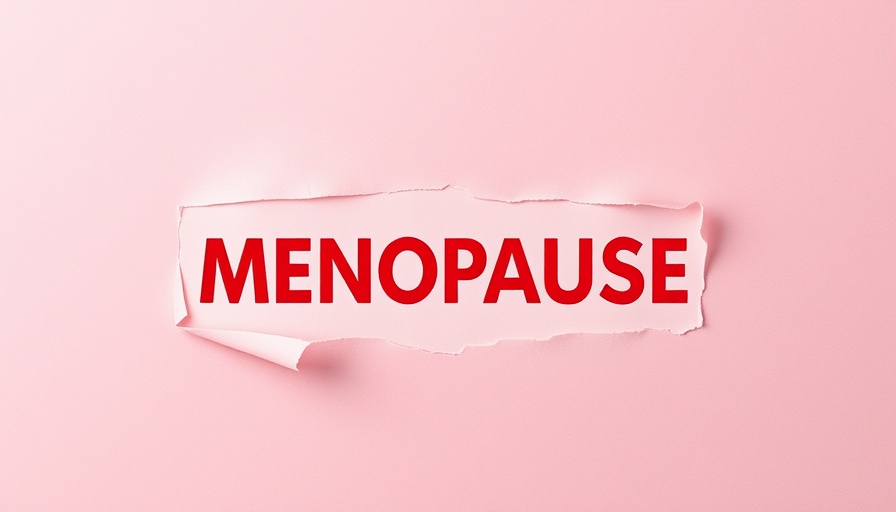
Understanding the Overlooked Symptoms of Menopause
As women approach menopause, several physiological changes occur, but often, bladder and lower urinary tract issues are overlooked. A recent study highlights these pressing concerns, suggesting that many women face symptoms such as urgency, incontinence, and other urinary challenges without the necessary attention they deserve. These conditions can significantly affect quality of life, yet they are frequently brushed aside or misattributed solely to aging.
Common Symptoms and Their Impact
Women experiencing menopausal transition may encounter a variety of urinary issues. Symptoms such as:
- Frequent urination
- Leaking urine during physical activities
- Increased urgency to urinate
- Recurrent urinary tract infections (UTIs)
These symptoms can be profoundly unsettling and lead to emotional distress. Yet, many women feel hesitant to discuss such personal matters with healthcare providers, often fearing stigma or believing the issues are a natural part of aging.
The Need for Awareness and Dialogue
The study emphasizes the importance of awareness surrounding these issues. Many healthcare professionals may not ask about urinary symptoms explicitly, leading women to believe that such symptoms are not worth mentioning. This lack of dialogue can result in insufficient treatment or advice, thereby worsening the patient's condition.
Strategies for Seeking Help
Women experiencing urinary challenges during menopause should feel empowered to bring these issues to their doctor's attention. Here are a few strategies that can help when discussing these sensitive topics:
- Prepare Ahead: Write down symptoms, how they affect daily life, and any questions before the appointment.
- Be Direct: Often, being straightforward about symptoms can lead to better outcomes.
- Request a Specialist: Consider asking for referrals to urologists or gynecologists who specialize in menopausal issues.
Emotional and Psychological Considerations
The emotional ramifications of experiencing bladder issues during menopause can be profound. Anxiety and depression are common in women facing these unanticipated changes, further complicating their experience. Important to note is that these symptoms can stem from hormonal fluctuations, which can be effectively managed with the right interventions.
The Future of Menopausal Health Discussions
As the conversation around menopausal health continues to evolve, greater emphasis is being placed on comprehensive care that includes discussions about urinary health. Healthcare providers are encouraged to adopt a more holistic and proactive approach, which recognizes the interconnection between physical and psychological health.
Conclusion: Know Your Body and Speak Up
Increased awareness and open discussion regarding bladder and urinary tract issues during the menopausal transition can empower women to seek the care they need. It's important for both patients and healthcare providers to recognize these symptoms as legitimate health concerns rather than mere inconveniences. Through supportive dialogue, women can take charge of their health and improve their quality of life during this transformative phase.
 Add Row
Add Row  Add
Add 




Write A Comment